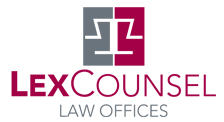22 December, 2017
Judgment: M/s. Unigreen Global Private Limited (“Unigreen”) v. Punjab National Bank (“PNB”) and others followed in Leo Duct Engineers & Consultants Limited v. Canara Bank and Another.
Forum: National Company Law Appellate Tribunal (“NCLAT”).
Judgments delivered on: December 1, 2017 and December 13, 2017 respectively.
Act/Law: The Insolvency and Bankruptcy Code, 2016 (“Code”).
Ratio: If complete information is provided by an applicant (corporate debtor) as required under Section 10 and Form 6 of the Code and if the applicant is otherwise not ineligible under Section 11 of the Code, the Adjudicating Authority (“NCLT”) is bound to admit the application and cannot reject the application on any other ground.
Background: The Code, at its inception was widely touted to be a mechanical piece of bankruptcy resolution law, and in fact India’s Chapter 11 (with reference to the US Bankruptcy Code). Therefore, one of the objectives sought to be achieved was to promote entrepreneurship culture, where the ground reality that “every new business contract be successful” and “failure of a business is not a crime by itself” was understood. However, once the Code was operationalized, the NCLTs witnessed various objections from corporate debtors and creditors alleging that initiation or institution of particular insolvency proceeding(s) was malafide. Within a short time, the range of objections that parties took against insolvency applications multiplied manifold. Certain NCLTs entertaining such objections rejected a few insolvency applications, which applications were otherwise qualified to be admitted in terms of the Code.
The judgments being reported here reflect a clear directive of the NCLAT to the NCLTs to strictly go by the objective and scheme of the Code and neither allow nor dismiss insolvency applications on facts unrelated to the requirements of the Code, provided however that the insolvency application(s) are otherwise qualified for admission in terms of the Code.
Analysis: The NCLAT has in the matter of Unigreen Global Private Limited (“Unigreen”) v. Punjab National Bank (“PNB”) and others settled the following two questions bringing a sigh of relief to the corporate debtors:
1. Whether non-disclosure of facts beyond the statutory requirement under the Code read with relevant form, prescribed under the Insolvency and Bankruptcy (Application to Adjudicating Authority), Rules, 2016 (“Rules”) can be a ground to dismiss an application for initiation of Corporate Insolvency Resolution Process? and
2. Whether the penalty imposed by the Adjudicating Authority under Section 65 of the Code is legal or not?
While deciding the above questions, NCLAT has held that Section 10 of the Code does not empower the Adjudicating Authority to go beyond the records as prescribed under Section 10 and the information as required to be submitted by a corporate debtor in Form 6 of the Rules subject to ineligibility, if any, as prescribed under Section 11 of the Code. Section 11 of the Code prescribes conditions which make an applicant ineligible/disqualified to make an application under the Code to initiate corporate insolvency resolution process. As per the judgment of NCLAT an applicant does not require to disclose or plead any fact which is unrelated or beyond the requirements of the Code or forms prescribed under the Rules and thus non-disclosure of such facts cannot be termed as suppression of facts by a corporate debtor.
NCLAT placed reliance on the judgment of the Supreme Court of India passed in the matter of Innoventive Industries Ltd. v. ICICI Bank and Others (dealing with Section 7 of the Code), NCLAT opined that another aspect to be seen by the Adjudicating Authority is existence of debt and default in payment of such debt. NCLAT then drew a comparison between Section 7 and Section 10 of the Code and concluded that sub-section (4) of Section 7 is similar to sub-section (4) of Section 10. Thus, the two factors which are common under Section 7 and 10 of the Code are (i) there should be a debt due; and (ii) there should be a default in payment of such debt.
With respect to imposing penalty under Section 65 of the Code, NCLAT observed that the Adjudicating Authority on the basis of the record is required to form a prima facie opinion that the person (Financial Creditor/Corporate Debtor/Operational Creditor) has filed the application for initiation of insolvency proceeding “fraudulently” or “with malicious intent” for the purpose other than the resolution of the insolvency or liquidation or that voluntary liquidation proceedings have been filed with the intent to defraud any person.
Based upon the above conclusions, NCLAT set aside the judgment of NCLT, Mumbai Bench, and remitted the application of Unigreen back to NCLT for consideration.
Thereafter, the matter of Leo Duct Engineers & Consultants Limited v. Canara Bank and Another has also been decided by NCLAT relying upon the ratio of Unigreen Global Private Limited v. Punjab National Bank and Others, wherein the NCLAT has set aside the judgment of NCLT, Mumbai Bench, holding that it was incumbent upon the Adjudicating Authority to admit the application having held that the application was complete under Section 10 and the applicant was not ineligible under Section 11. NCLAT further observed that Adjudicating Authority has no jurisdiction to record and consider unrelated facts which are beyond the requirement of the Code and forms prescribed under the Rules.
Conclusion: To summarise, as per NCLAT the Adjudicating Authority has no option but to admit the application of a corporate debtor under Section 10 of the Code, if it is satisfied that:
i. there is a debt and default of such debt has occurred;
ii. the corporate debtor is not ineligible under Section 11 of the Code; and
iii. the application of the corporate debtor is complete in all aspects and if it is incomplete the corporate debtor is to be granted time to rectify the defects as stipulated under the Code.
Furthermore, while deciding insolvency applications, Adjudicating Authority has no jurisdiction to record and consider unrelated facts which are beyond the requirement of the Code and forms prescribed under the Rules.
For further information, please contact:





